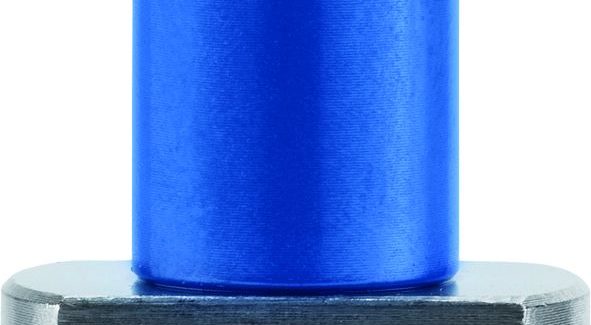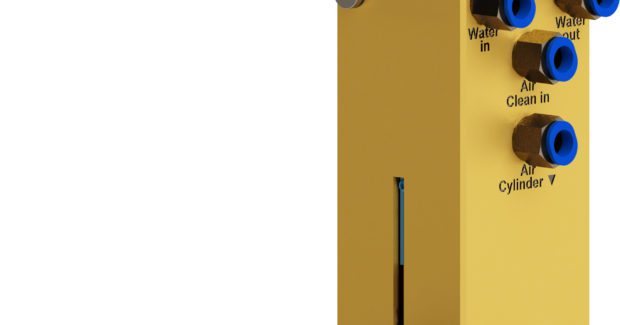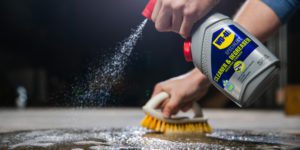Ceramic Centring Pins for Automated Welding
Cerazur ceramic welding centring pins from Doceram are extremely durable, with high impact strength that is ideal for the very short cycle times of automated production lines, such car body assembly, where even hardened metal centring pins quickly become deformed and worn.
Posted: May 10, 2016
Cerazur ceramic welding centring pins from Doceram have a 40 times longer service life compared to hardened metal in automated welding lines. Welding spatter does not stick to them, so they avoid interruptions in production due to defective welds caused by material build-up. This also ensures that their positioning accuracy is guaranteed for long periods.
One would expect that fabricators of sheet metal and welding systems would prefer to use metallic materials in their machines. But when it comes to fixing the sheets and assemblies in automated welding lines, they avoid the use of (hardened) metal and instead use ceramic centring pins that have a service life up to 40 times longer. For this reason, Doceram GmbH (Dortmund, Germany) has expanded its Cerazur range of centring pins made of blue high-performance ceramic. These ceramic centring pins are extremely durable, with high impact strength that is ideal for the very short cycle times of automated production lines, such car body assembly, where even hardened metal centring pins quickly become deformed and worn. Components made of Cerazur, a yttrium-stabilized zirconium oxide, stay geometrically stable even when undergoing extreme mechanical stress.
Another advantage of ceramic is that welding spatter does not stick to it, which is why ceramic centring pins avoid interruptions in production due to defective welds caused by material build-up. This also ensures that when Cerazur centring pins are used in the manufacturing line, their positioning accuracy is guaranteed for long periods. This makes it possible to obtain exactly reproducible welding results, resulting in high availability and minimum downtime that pays off for the user. In automated, short-cycle applications like car body manufacturing, this particular advantage outweighs the additional cost of high-performance ceramic and applies not only to welding lines, but also for other types of assembly, like flanging and clinching.
All these reasons have led the major automotive manufacturers to rely on Cerazur centring pins and to benefit from their technical and economic advantages. They use Doceram pins in complete welding electrodes that consist of a base electrode, a screwed-on change electrode and a compressed-air controlled centring pin made of ceramic. These complete electrodes have a modular construction that adapts to almost any kind of equipment. Their “plug and play” design allows them to be installed very quickly.
Doceram GmbH, Hesslingsweg 65 – 67, 44309 Dortmund, Germany, +49 231 925 02585, [email protected], www.doceram.com.
















